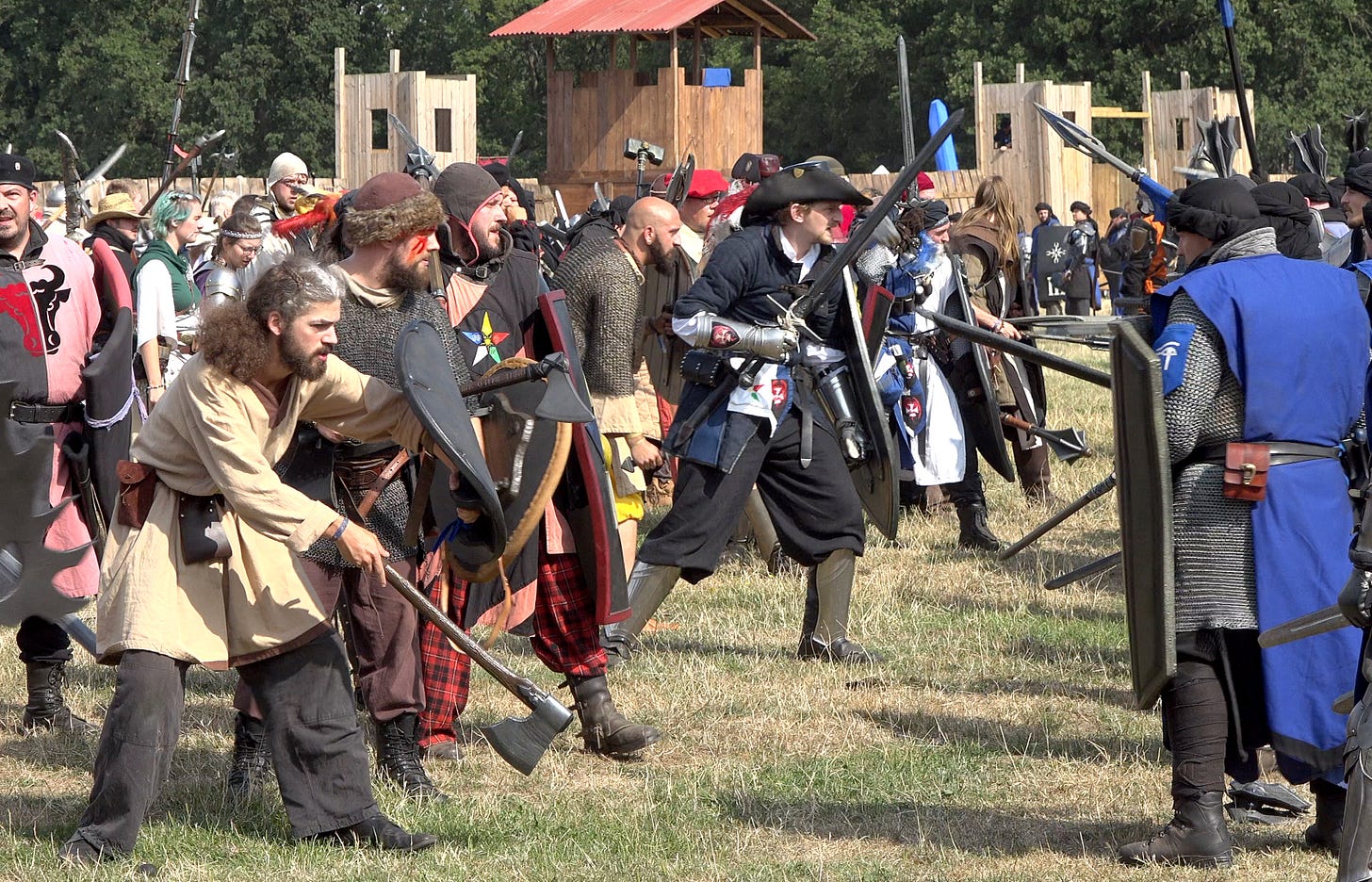There’s been a wave of articles, published in, for example, The Atlantic and The New York Times, fretting about the rise of a group of young activists called the New Right. This group consists mostly of young men in their 20s and 30s who are deeply alienated not just from their liberal peers but also from older conservatives, whom they view as pampered weaklings who have spent a lifetime surrendering to the left and wasting their patrimony.
Writing in the New Republic, Sam Adler-Bell has limned the best and most convincing portrait of the New Right, showing the movement’s continuity with earlier anti-liberal counterrevolutionaries but also emphasizing the novel historical situation they find themselves in. Profiling the fledgling intellectuals and policy entrepreneurs clustered around the Claremont Institute and Hillsdale College, Adler-Bell highlights the group’s sense of alienation from the triumph of social liberalism, and how they find refuge in theories of extreme social alternatives. These extremes range from Catholic theocracy to West Coast Straussianism to the Neolithic roleplaying promoted by someone who calls himself Bronze Age Pervert.
As Adler-Bell explains:
In 2019, The American Mind hosted a symposium on the alt-right Twitter personality ‘Bronze Age Pervert,’ known as BAP, who posts homoerotic photos of bodybuilders alongside diatribes against the repulsive ‘bugmen’ who would impose egalitarian shackles on their beautiful betters. More recently, Claremont scholars have come under the spell of Silicon Valley’s monarchist blogger Curtis Yarvin, who advocates a coup to install an American Caesar to preside over a corporatist government with no democratic legitimacy.
The New Right’s backward glance toward imagined glory comes is fairly self aware; the movement’s leaders understand that they have broken with modern reality, and they react by tending to the desire to mythologize themselves as a “saving remnant” who will keep civilization alive during the current dark age. They are, you might say, the latest incarnation of maudlin Miniver Cheevy, the titular hero of Edwin Arlington Robinson’s 1910 poem.
As Robinson wrote, Miniver Cheevy was defiantly anti-modern:
Miniver Cheevy, child of scorn,
Grew lean while he assailed the seasons;
He wept that he was ever born,
And he had reasons.
Miniver loved the days of old
When swords were bright and steeds were prancing;
The vision of a warrior bold
Would set him dancing.
Robinson poems makes clear that poor Cheevy’s fantasies lead to delusional quietism:
Miniver Cheevy, born too late,
Scratched his head and kept on thinking;
Miniver coughed, and called it fate,
And kept on drinking.
What Robinson’s poem neatly sketches out is the mental habit that turns the past into a glamorous and untroubled fantasy: daydreams of a Middle Age of jousting knights but no Black Death for Cheevy, onanistic hallucinations of a theocracy without violent resistance for Cheevy’s modern counterparts.
It would be a false consolation to think that the New Right, as deranged as their ideas are, are likely to share in Miniver Cheevy’s boozy retreat into self-pitying nostalgia. The New Right’s solutions might be esoteric but they can ride to power on shared discontent of millions of conservatives who might not want the Latin Mass or Platonic philosophy but who, no less than the members of the New Right, dislike #MeToo and Black Lives Matter.
In contrast with the New Right’s focus on lofty and airless ideas, Adler-Bell argues that right-wing writer Matthew Walther is on surer ground with his “concept of ‘Barstool Conservatives’—fratty libertines dedicated primarily to scandalizing overbearing libs and flouting their social norms and niceties—remains the most clear-eyed encapsulation of the GOP’s prospective future majority.” But the two branches of the right spring from the same family tree: Miniver Cheevy was himself a barstool conservative of a sort.
The right almost always depends on an alliance between the snobs and the slobs, the tiny cadre of intellectuals who make the case against modernity and the larger populace who are irritated by social change. The Barstool Conservatives might help Trump win again in 2024, but after he’s elected he’ll have to fill up his administration. Based on his experiences in his first presidency, Trump would have every reason to distrust more mainstream Republicans and turn to people who are more ideologically committed. The institutions backing the New Right are very clear-eyed about this. As Adler-Bell notes:
Claremont has close ties to the most serious New Right political project, American Moment, a sort of policy shop cum training institute, founded by Sharma and two other conservative twentysomethings, that aims to ‘identify, educate, and credential’ a new generation of staffers and bureaucrats who believe in ‘strong families, a sovereign nation, and prosperity for all.’ In other words, they hope to staff the next Trump presidency with true believers like themselves.
The New Right doesn’t have much use for democracy but they don’t really need to. Thanks to the anti-democratic features of the American political system (the electoral college, the Senate, the courts, and gerrymandering) it’s possible for a minority movement to prevail. And these anti-democratic features are only being strengthened by Republican efforts in the states and the rolling back of voting rights.
Miniver Cheevy, as imagined by Edwin Arlington Robinson, was bad enough: a beer-goggled crank bemoaning the loss of glory days he never even knew. But imagine a government staffed with Miniver Cheevys! That would take us from mild bathos into terrifying farce.
(Edited by Emily M. Keeler)
CORRECTION: I removed the phrase “more populist” from a description of Matthew Walther since it is inaccurate.
Share and subscribe:
If you liked this post, please share:
Or subscribe:





The presumption, of course, is that the Left is very much committed to democracy, which it's not.